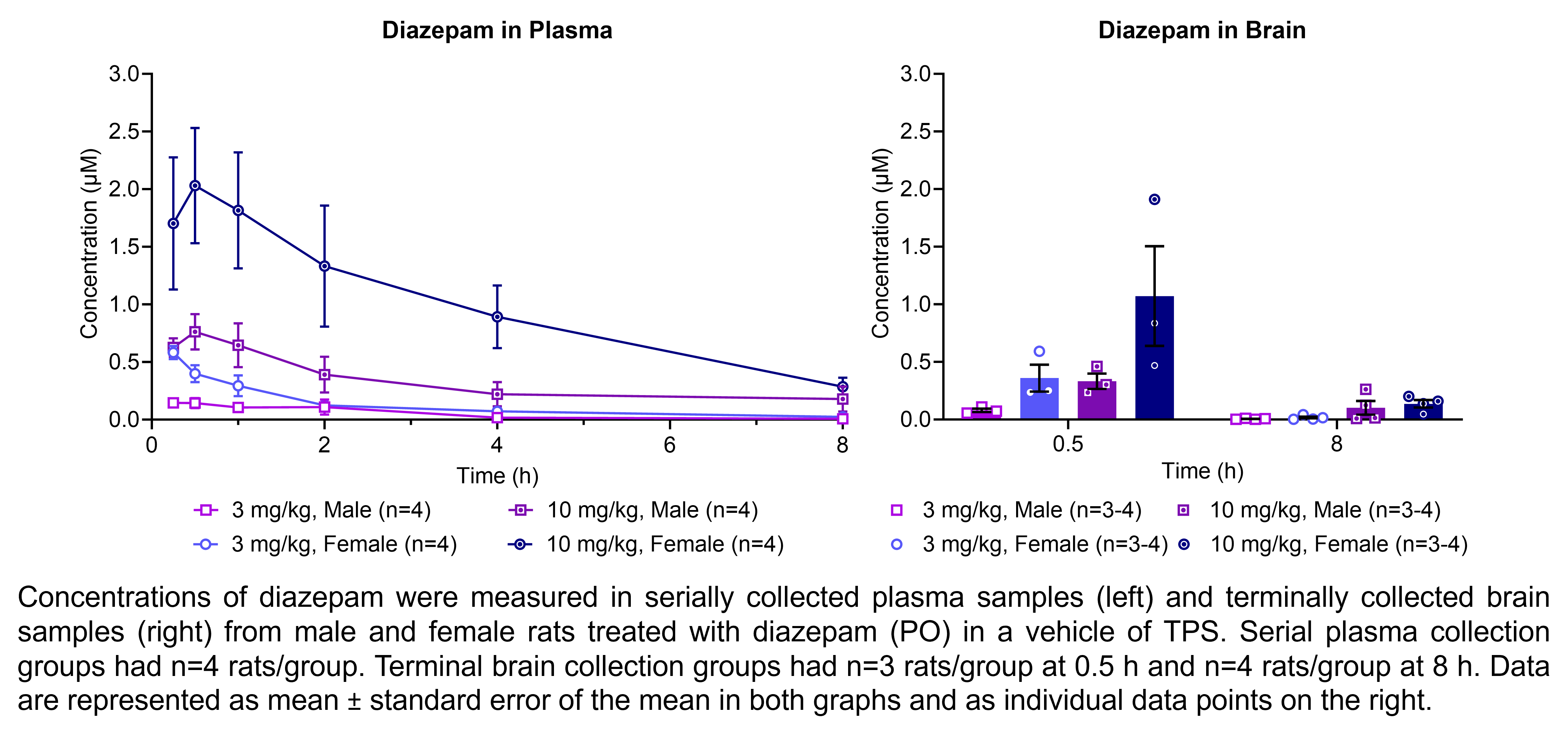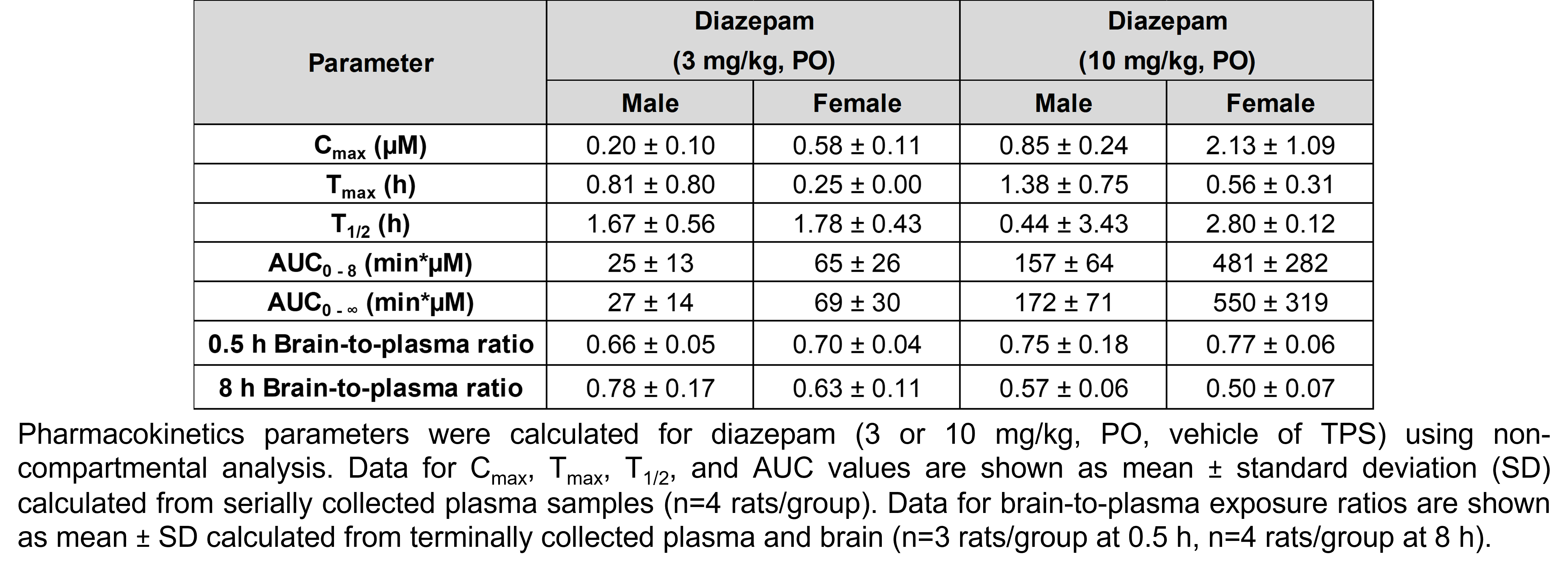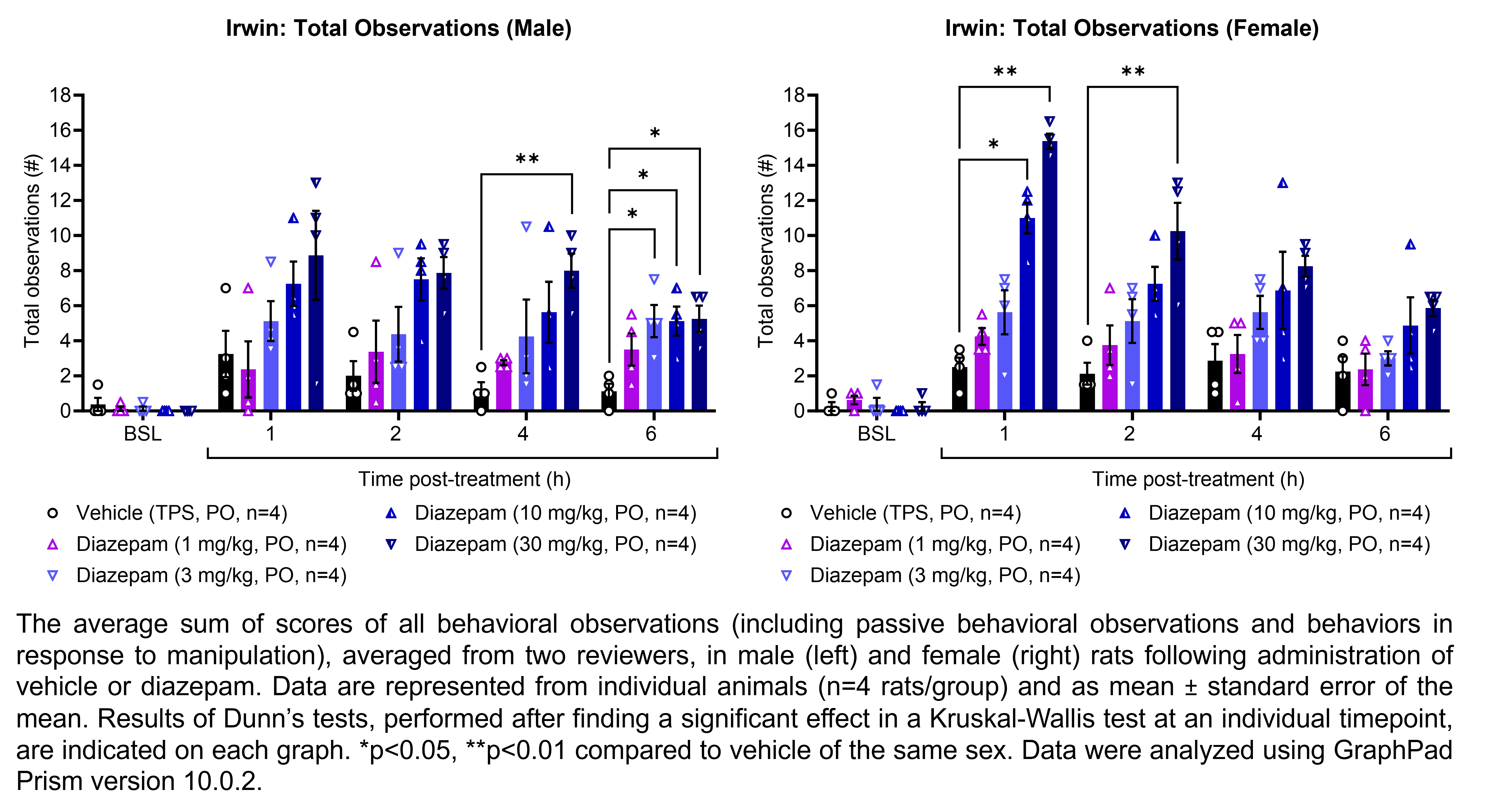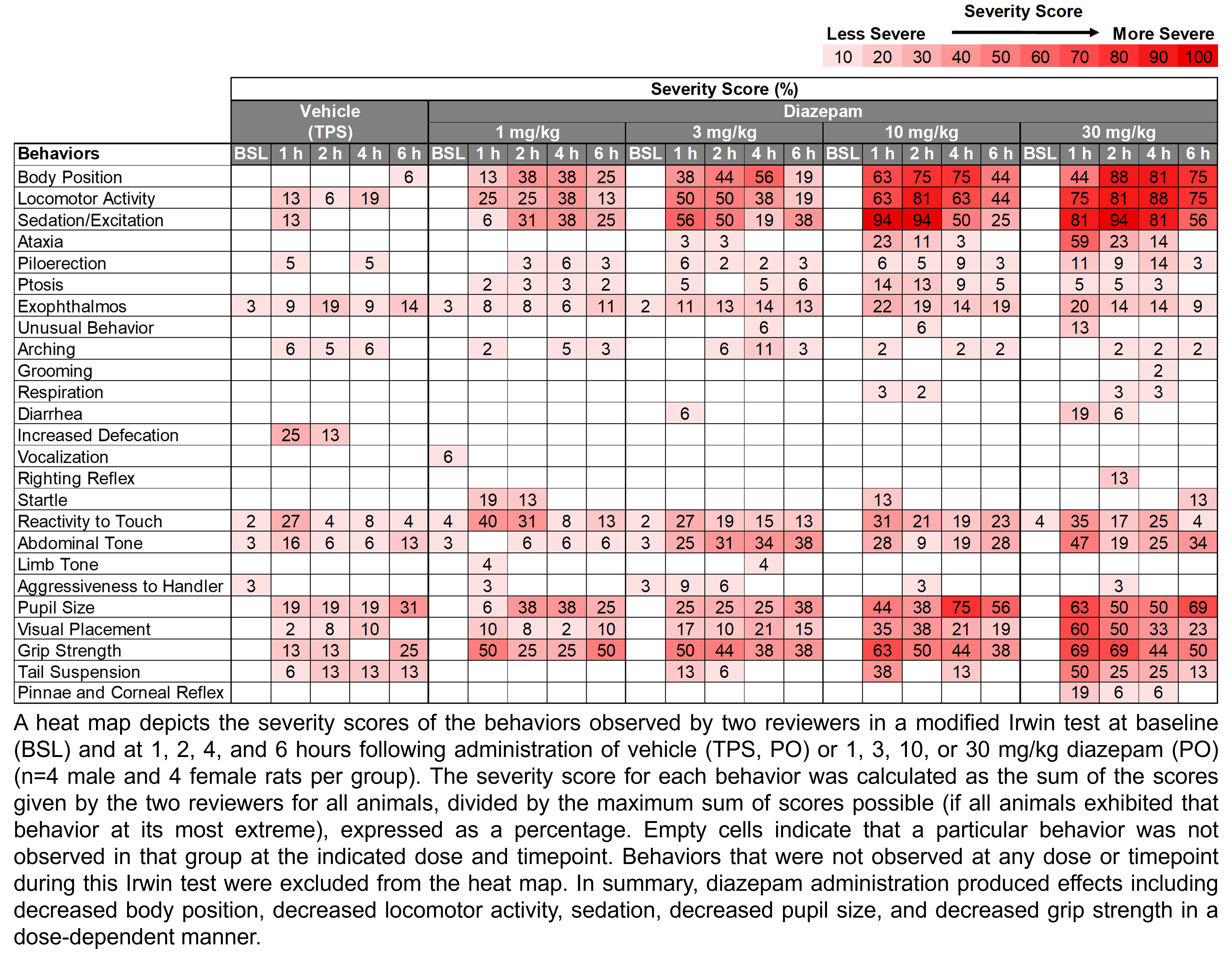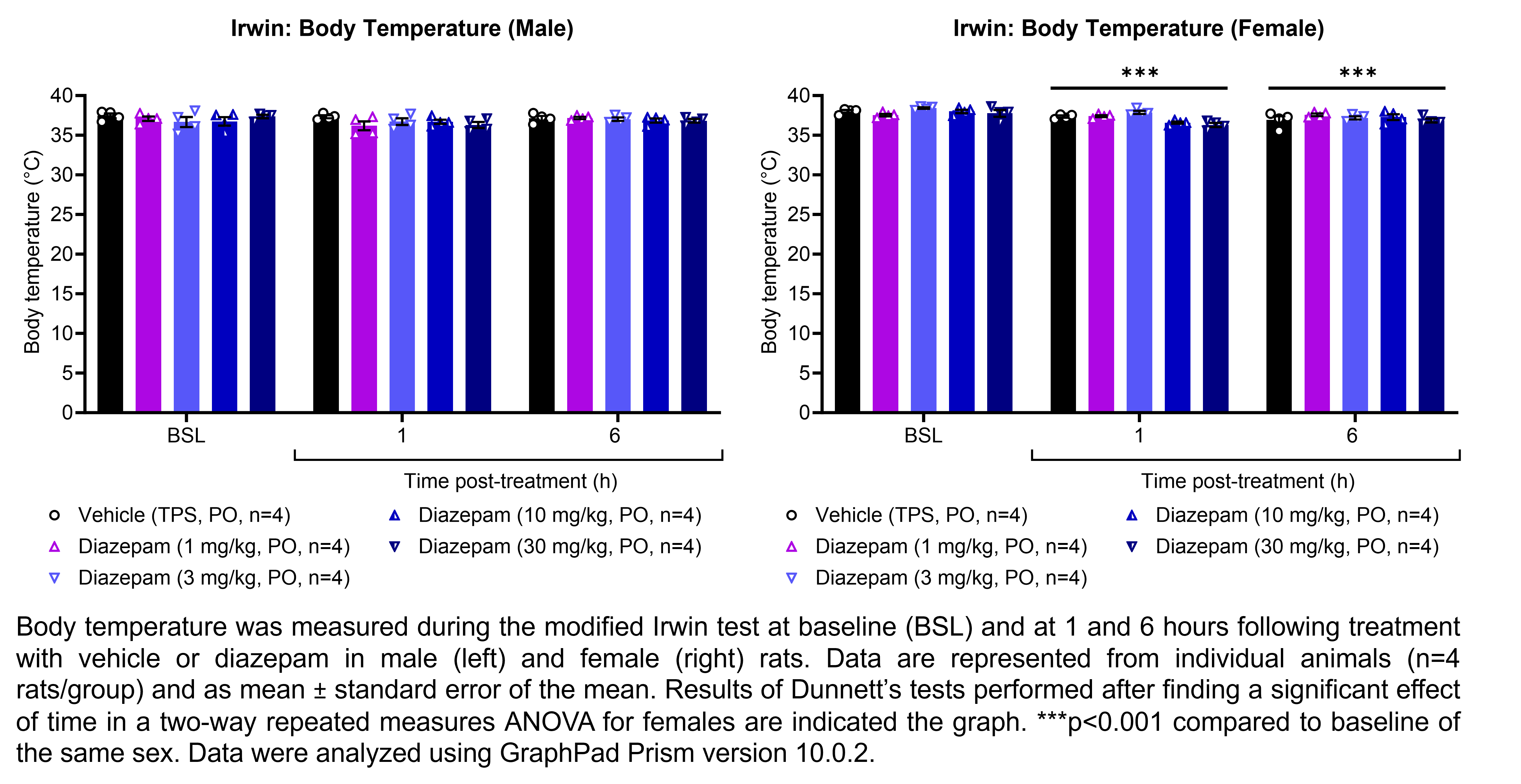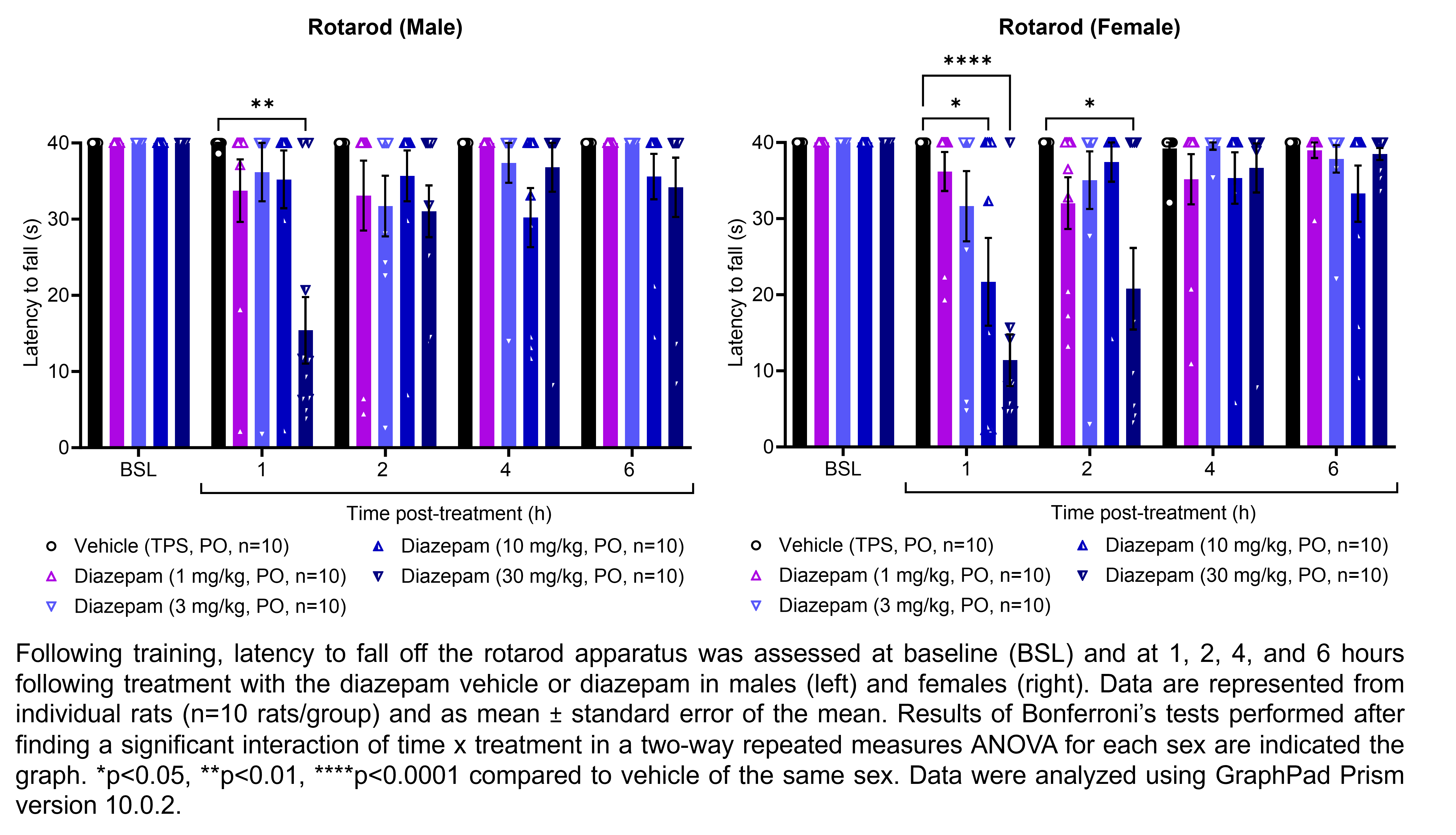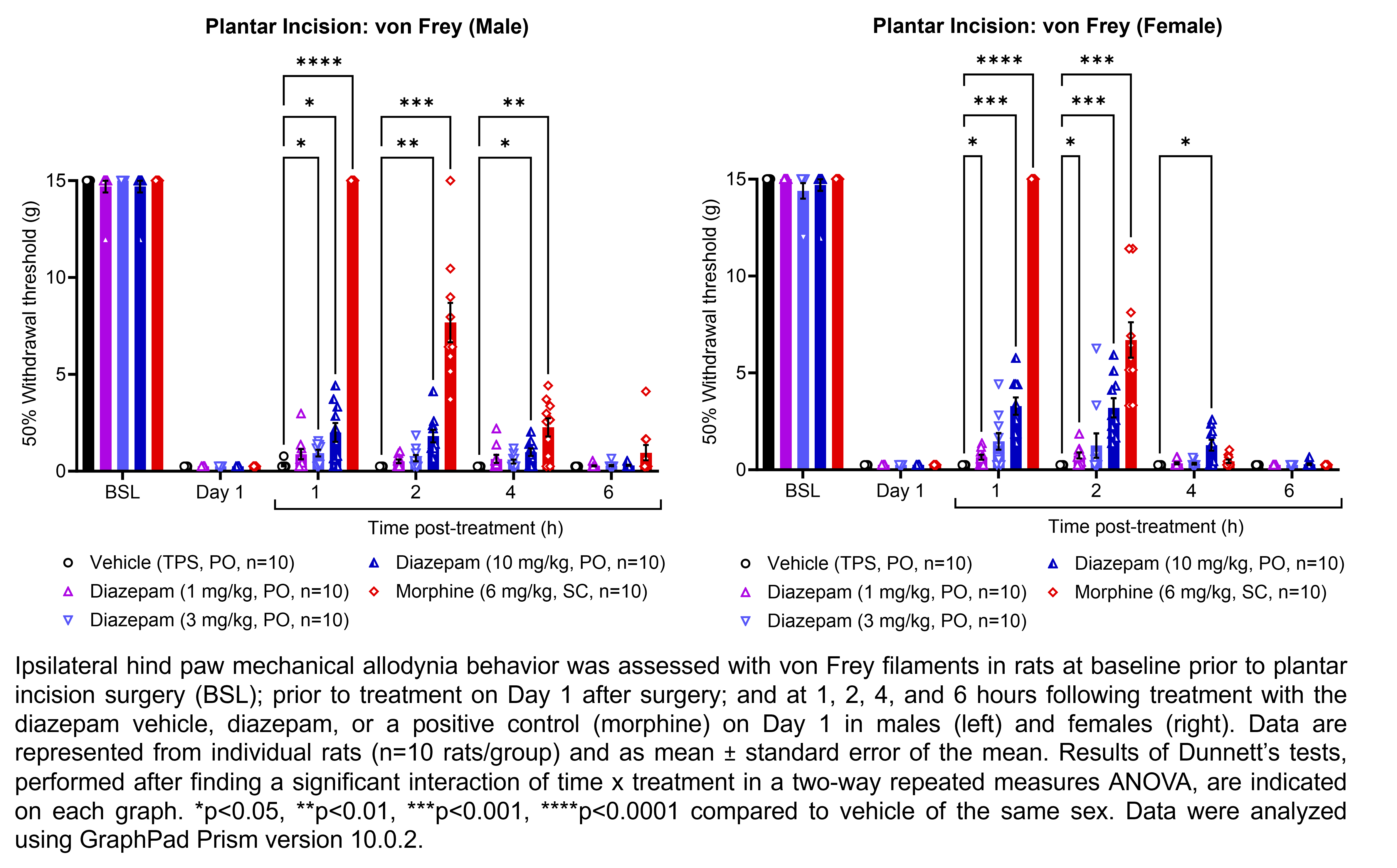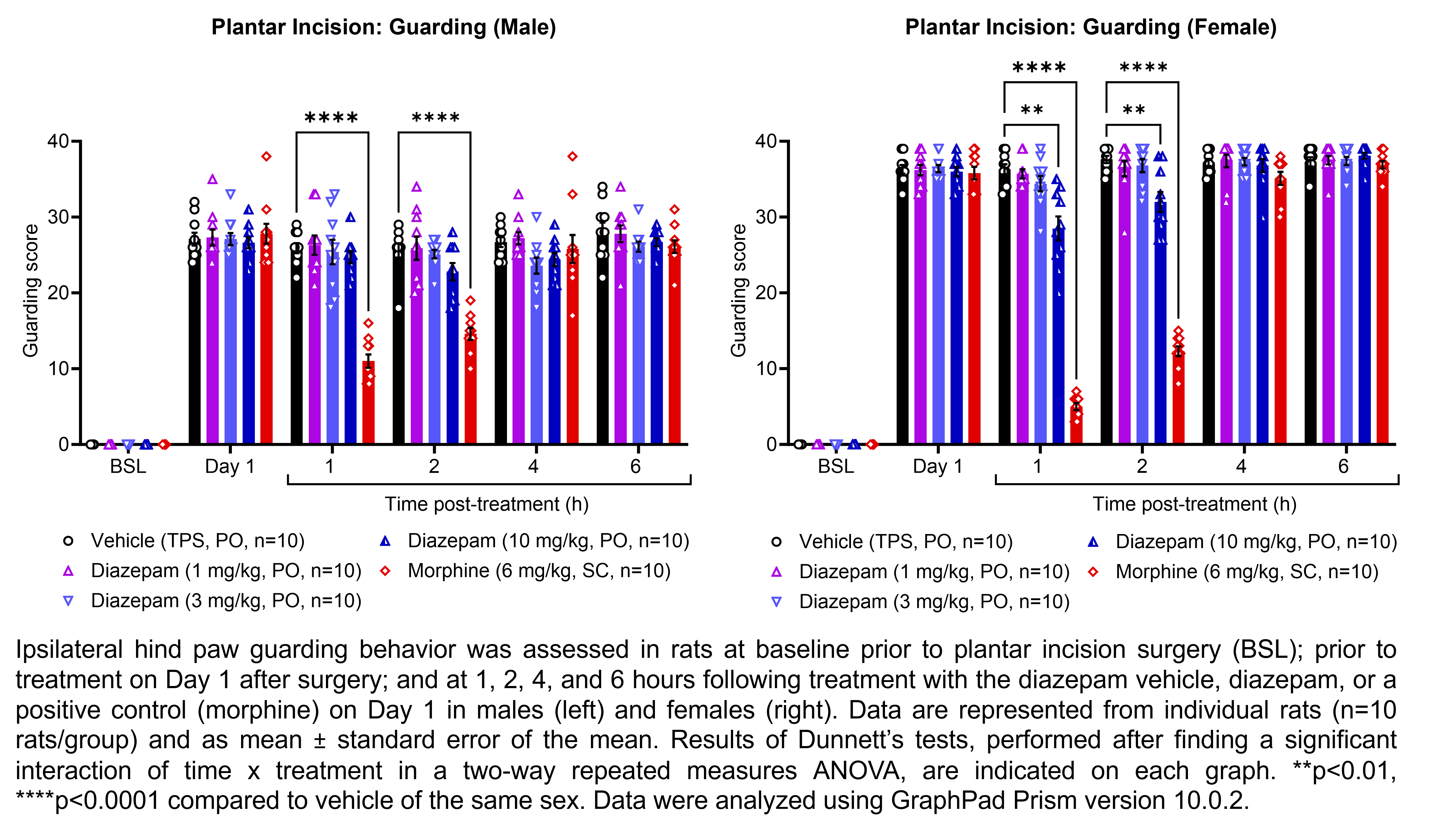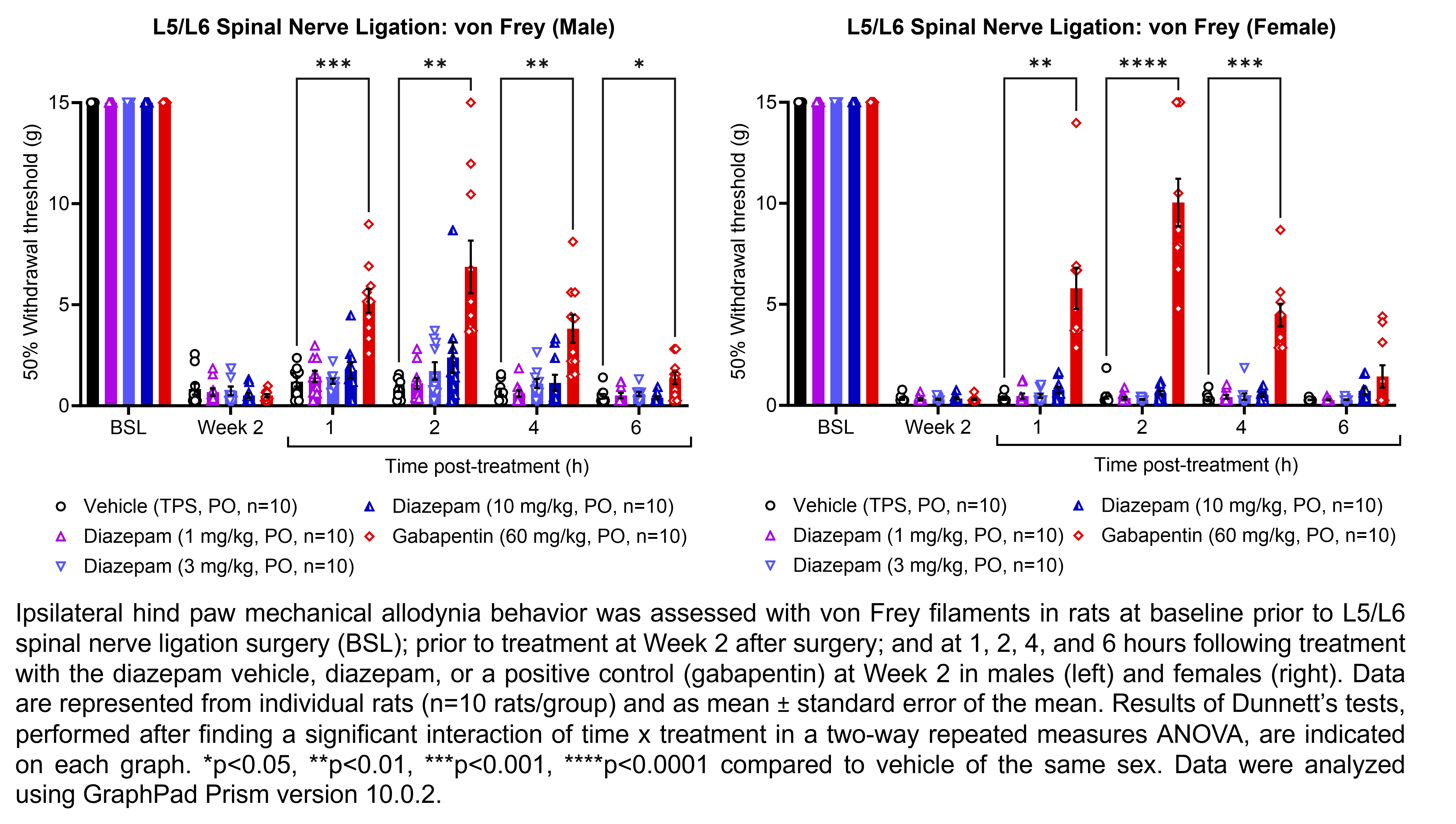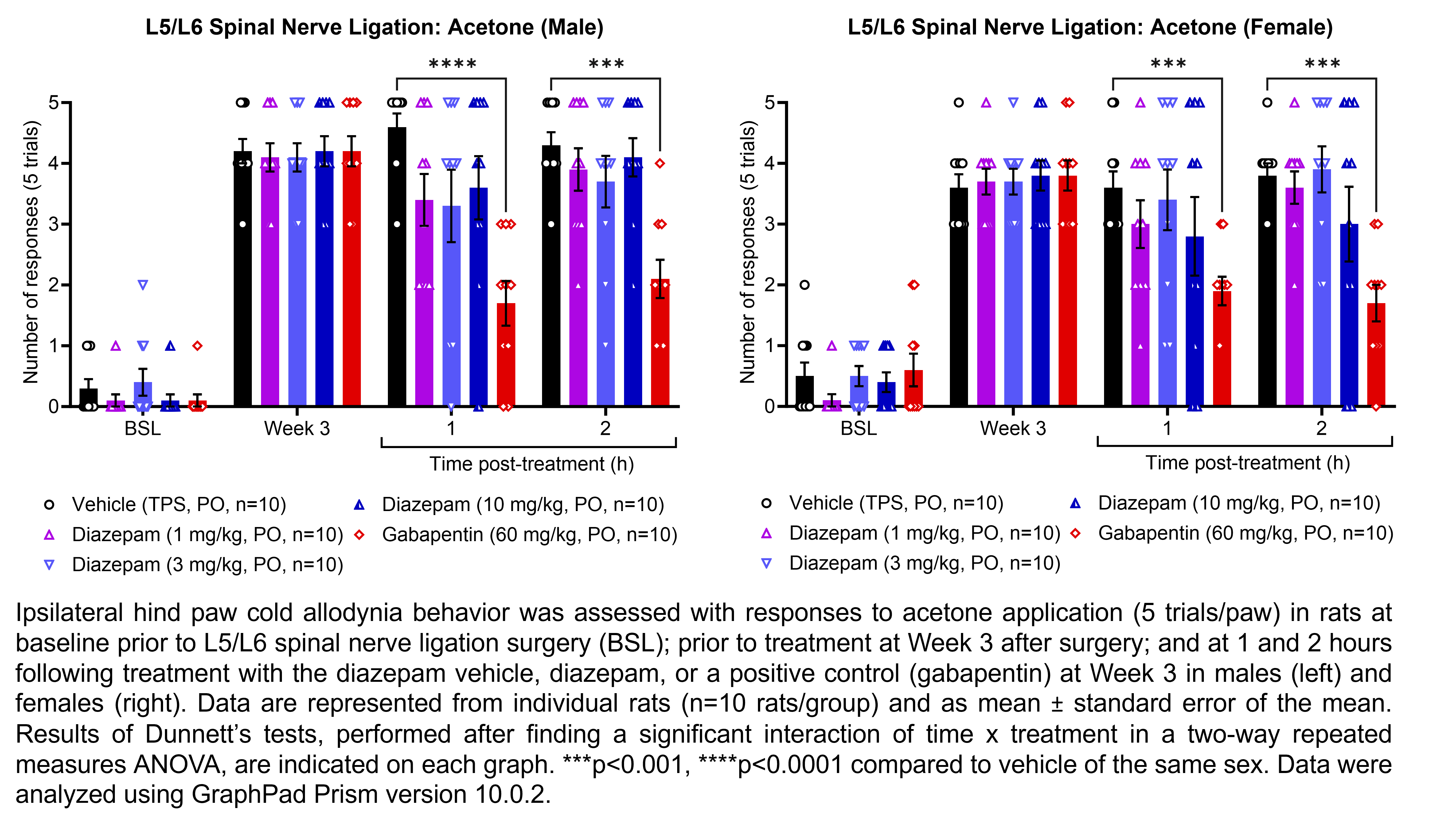DIAZEPAM
Formulation
The table below describes the formulation of diazepam and the controls morphine sulfate and gabapentin for the following in vivo experiments.
| Experiment(s) | Compound | Dose(s) mg/kg | Correction factor | Dose volume mL/kg | Route | Vehicle | Suspension / Solution |
|---|---|---|---|---|---|---|---|
| Pharmacokinetics | Diazepam | 3, 10 | 1.00 | 1 | PO | TPS | Suspension |
| Irwin, Rotarod | Diazepam | 1, 3, 10, 30 | 1.00 | 5 | PO | TPS | Suspension |
| Plantar incision, | Diazepam | 1, 3, 10 | 1.00 | 5 | PO | TPS | Suspension |
| L5/L6 SNL | |||||||
| Plantar incision | Morphine | 6 | 1.33 | 1 | SC | Saline | Solution |
| L5/L6 SNL | Gabapentin | 60 | 1.00 | 1 | PO | Saline | Solution |
L5/L6 SNL = L5/L6 spinal nerve ligation; PO = per os; SC = subcutaneous; TPS = 5% Tween 80, 5% polyethylene glycol (PEG) 300, and 90% saline
Results
Expand and Collapse accordion content
This work was conducted by PsychoGenics Inc. (Paramus, NJ) in collaboration with PSPP, NINDS, NIH under contract # 75N95019D00026. Prescribing information for clinically used controls can be found at labels.fda.gov. Information for icons representing experimental design details can be found through the NINDS Office of Research Quality https://go.nih.gov/Yw2tHGI.



